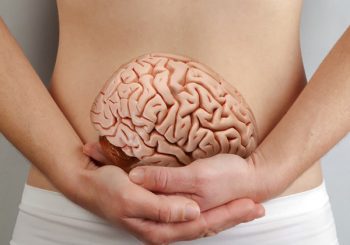 By Nikki Harper
By Nikki Harper
Staff Writer for Wake Up World
It has been known for several decades that gut health appears to have an effect on mental health and brain health – the so-called gut-brain axis. For example, autoimmune diseases such as inflammatory bowel disease have been linked with mood disorders, anxiety and depression. However, the precise mechanism by which the gut-brain axis functions has been largely unknown – but now, new research is starting to shed light on this matter.
According to research published in Nature and carried out by Weill Cornell Medicine, depleted microbiota in the gut can cause altered gene expression in microglia, which are immune cells found in the brain [1]. This effectively interferes with the connections of brain synapses which should occur during a learning process.
The breakthrough was made during a study of mice. Researchers found that mice treated with antibiotics, which depletes the levels of gut microbiota, showed impaired ability in fear extinction, ie they were slower to learn that a threat was no longer present than mice with normal levels of gut microbiota. When researchers sequenced the RNA in the mice microglia, the altered gene expression was discovered.
The same study also examined mice which had been bred to be ‘germ-free’ (ie without gut microbiota). These mice were found to have altered concentrations of metabolites which have been associated with schizophrenia and autism. Researchers were able to mitigate this by restoring gut microbiota in these mice, but only if they did so immediately following birth – an interesting finding, given that the types of psychiatric and mental health disorders associated with autoimmune disease in humans are often those which are also linked to problems with early brain development.
This research is the first time that a potential mechanism for the gut-brain axis has been scientifically described. The gut-brain axis impacts every single human being, every day of their lives,” said Dr David Artis, director of the Jill Roberts Institute for Research in Inflammatory Bowel Disease. We are beginning to understand more about how the gut influences diseases as diverse as autism, Parkinson’s disease, post-traumatic stress disorder and depression. Our study provides a new piece of understanding of how the mechanisms operate.”
The findings of this study open up potential new avenues for treatment of some autoimmune and psychiatric disorders. With a clearer picture of how diet, infection, and lifestyle influence brain health and subsequent susceptibility to neuropsychiatric disorders, we could potentially gain unique insight into how to treat or prevent debilitating, physically and emotionally painful conditions which are becoming increasingly common. The study authors are hopeful. “”We don’t know yet, but down the road, there is a potential for identifying promising targets that might be used as treatments for humans in the future,” said Dr Conor Liston, an associate professor of psychiatry at Weill Cornell Medicine. “Brain chemistry essentially determines how we feel and respond to our environment, and evidence is building that chemicals derived from gut microbes play a major role,” adds Dr Frank Schroeder, a professor in the Chemistry and Chemical Biology Department at Cornell Ithaca [2].
Article sources:
- [1] https://www.nature.com/articles/s41586-019-1644-y
- [2] https://research.weill.cornell.edu/about-us/news-updates/gut-instincts-researchers-discover-first-clues-how-gut-health-influences-brain
About the author:
Nikki Harper is a spiritualist writer, astrologer, and editor for Wake Up World.

If you've ever found value in our articles, we'd greatly appreciate your support by purchasing Mindful Meditation Techniques for Kids - A Practical Guide for Adults to Empower Kids with the Gift of Inner Peace and Resilience for Life.
In the spirit of mindfulness, we encourage you to choose the paperback version. Delve into its pages away from screen glare and notifications, allowing yourself to fully immerse in the transformative practices within. The physical book enriches the learning process and serves as a tangible commitment to mindfulness, easily shared among family and friends.
Over the past few years, Wake Up World has faced significant online censorship, impacting our financial ability to stay online. Instead of soliciting donations, we're exploring win-win solutions with our readers to remain financially viable. Moving into book publishing, we hope to secure ongoing funds to continue our mission. With over 8,500 articles published in the past 13 years, we are committed to keeping our content free and accessible to everyone, without resorting to a paywall.






